Dungeon Crawl: What System?
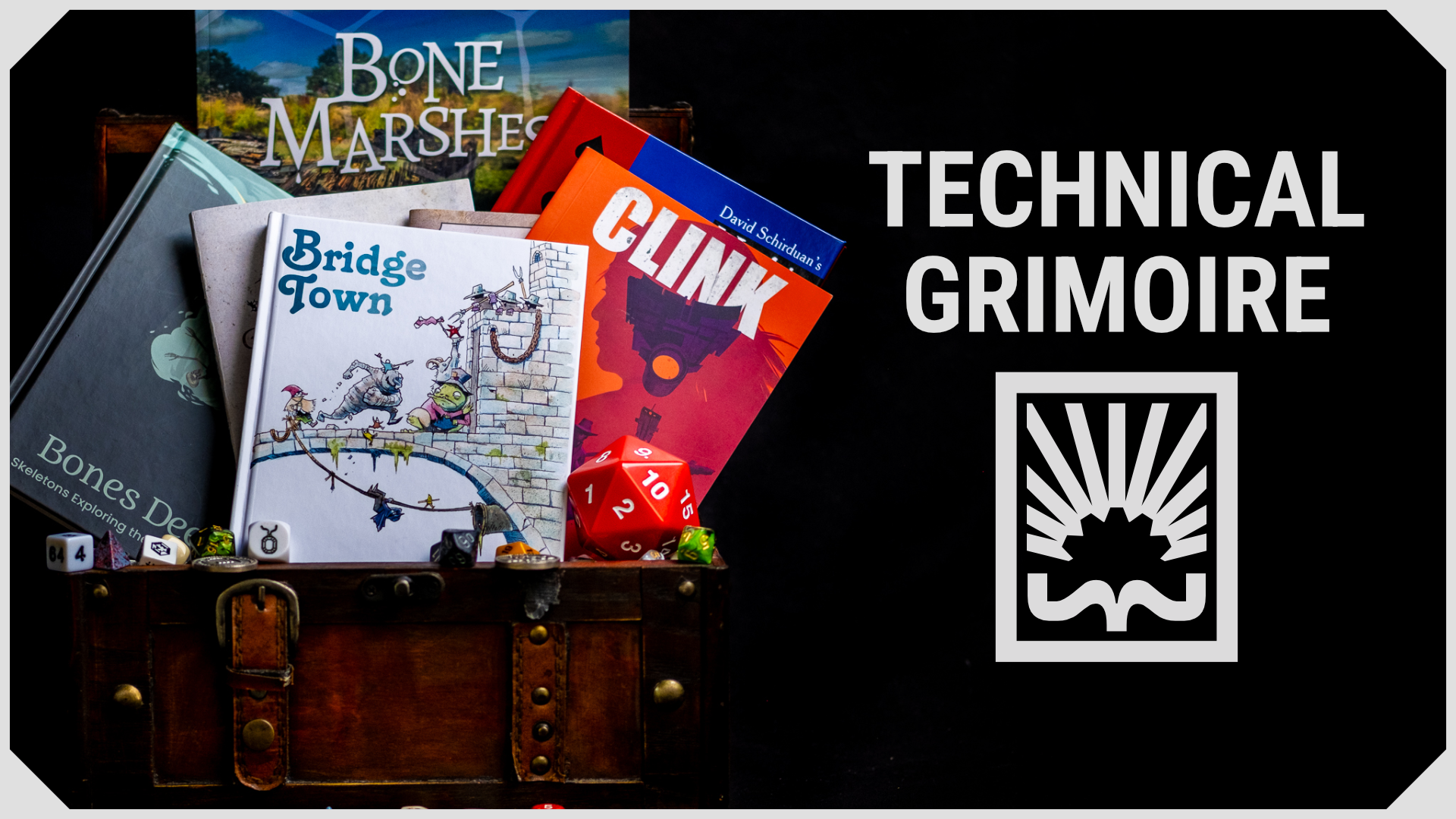
The “Dungeon Crawl” has been a staple of RPGs that I have actively avoided.
Sending 4 carefully crafted characters delving into a dark dungeon just never appealed to me. I don’t like killing characters, most games turn combat into a slog, and I’ve never been able to make puzzle rooms work at my table.

Dungeon World was my real intro to RPGs with its heavy emphasis on characters and story. These games more closely resemble campfire stories than diablo-style loot grinders. My best moments of tabletop gaming involved difficult conversations or tough life choices; not killing 100 rats in some basement.
So imagine my surprise when I got an intense urge to try an old-school dungeon crawling system. I partially blame my love of rogue-like video games, many of which harken back to classic DnD modules. But I also think I’m curious to see what all the buzz is about.
After a few weeks of doing research I’ve gotten a better handle on what kind of game I’d like to play. This post will give a brief overview of the games I looked into, and talk about which ones fit my table. I’ll make another post later about which adventure/dungeon I want to run.
Features and Tone Permalink
First let’s talk about what kind of dungeon crawl I’m looking for. I want:
- A fun-house experience. Players are capable of making effective decisions, but are encouraged to take risks or try something dangerous. That’s fun. Spending 20 minutes crawling through every room with a 10-foot pole gets old fast. The rules shouldn’t get in the way of exploring the dungeon or trying to solve a puzzle.
- Exploration and Discovery. The dungeon is not about loot and monsters; those are just an excuse to get players exploring interesting spaces filled with history and mystery.
- Loot and Monsters. Not that loot and monsters aren’t fun! Ideally monsters should be interesting; offering multiple ways to handle them. Loot should be quick and satisfying. A +1 sword is boring, but a flaming god-killer is a little too much. Something solid in between. The less paperwork for me the better.
- Random Characters. This is a minor issue, but I’ll have a much easier time killing a randomly generated avatar than a beloved character.
Now let’s talk system specific stuff. There are a LOT of options for a dungeon crawl. Technically any system could be used, but I’m more interested in games built with dungeon crawls in mind. Here are some of the games I covered in my limited research.
The Games Permalink
Quick Aside: Right off the bat I dismiss games that use difficulty settings. The GM picks the target number the players need to roll over/under. E.g. lifting a boulder is more difficult than lifting a rock. It’s a fine mechanic that makes a lot of sense, but I hate it and refuse to use it.
This is part of a longer rant, but I get really stressed out when setting difficulties and find them to be a drag in my games. If something needs to be particularly difficult or risky, I just add more consequences to failure, or require the players to setup the action with more risky actions. “To lift the rock, you will need to carefully construct a pulley system and you all need to work together, etc.”
If you like games with difficulty ratings, check out Dungeon Crawl Classics and DnD 5e for solid dungeon crawling systems. Anyway, on with the systems overview.
TorchBearer Permalink
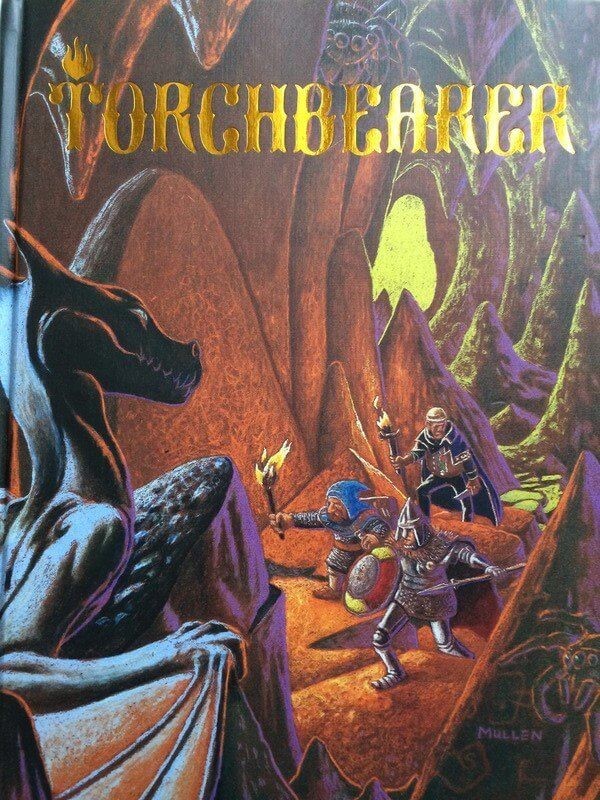
Pros: Dark and Crunchy. Excellent rules for tracking rations, torches, inventory, light sources, etc. If you want something with a little more crunch that drives home how dangerous a dungeon can be, TB is awesome.
Cons: It is complicated. Not necessarily rules-wise, but players must keep track of a LOT of stuff. Distance, weight, speed, armor, weapons, carrying a sack is different than wearing a backpack, etc. I need something much lighter and easier. I want the dungeon to be difficult, not the rules.
Labyrinth Lord Permalink
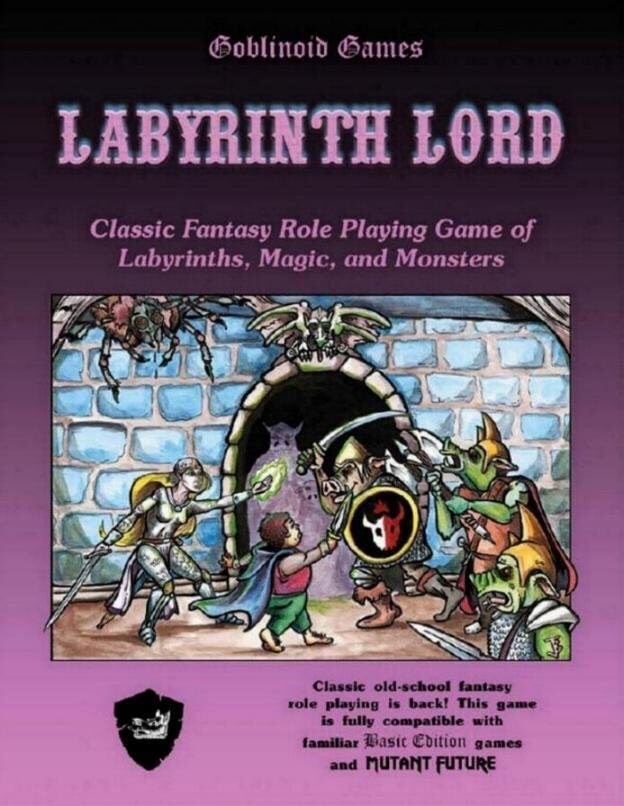
Pros: A streamlined version of early DnD. The whole system is focused on dungeon crawls. For example, to break down a door you need to roll a 1 or 2 on a d6. Combat is brutal and straightforward to anyone used to d20 systems. I like how the game has rules for common dungeon scenarios; going back to town, leaving a will for your possessions, etc.
Cons: LL stays faithful to classic DnD, too much so in my opinion. Each class has different saving throws, some of the math is a bit weird, a lot of responsibility is placed on the GM, etc. It’s too clunky for me; if I did use it I would modify it heavily.
Lamentations of the Flame Princess Permalink
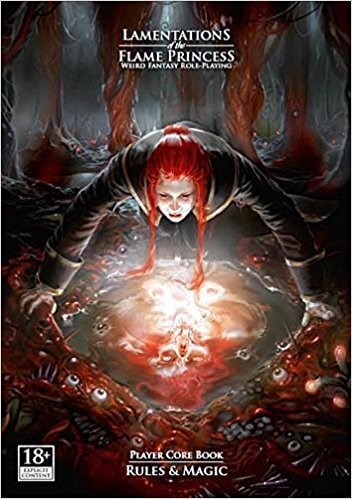
Pros: LotFP is a recent game with incredible community support. There are tons of modules built for this game, most of which seem to be very high quality! I like how skills are just a single d6 roll, that makes things quick and easy. A huge part of the book is lists of spells, making magic users and clerics extremely flexible and useful.
Cons: Still too complex for me. I like the detail given to each skill, with example and explanations of how difficult it might be to sneak past something. Maybe if I get an experienced group of players willing to dive into a complex system I’ll pull this one back out; definitely my favorite of the “crunchy” systems.
The Black Hack Permalink

Pros: Abstracted DnD. Characters roll under their stats, which is a mechanic I’ve always enjoyed for its simplicity. Equipment has cool rules based on a “usage” die that sounds fun. Lots of clever little rules. For example heavy weapons increase all rolls by 2 so they are harder to hit with, but deal more damage. One of the many little touches that makes this game shine.
Cons: Not many for me personally. It looks pretty solid, but nothing jumps out and grabs me. Combat does look somewhat dry and straightforward, but I might just be unimaginative. I’d be willing to try it out and see if it plays better than it reads.
Macchiato Monsters Permalink
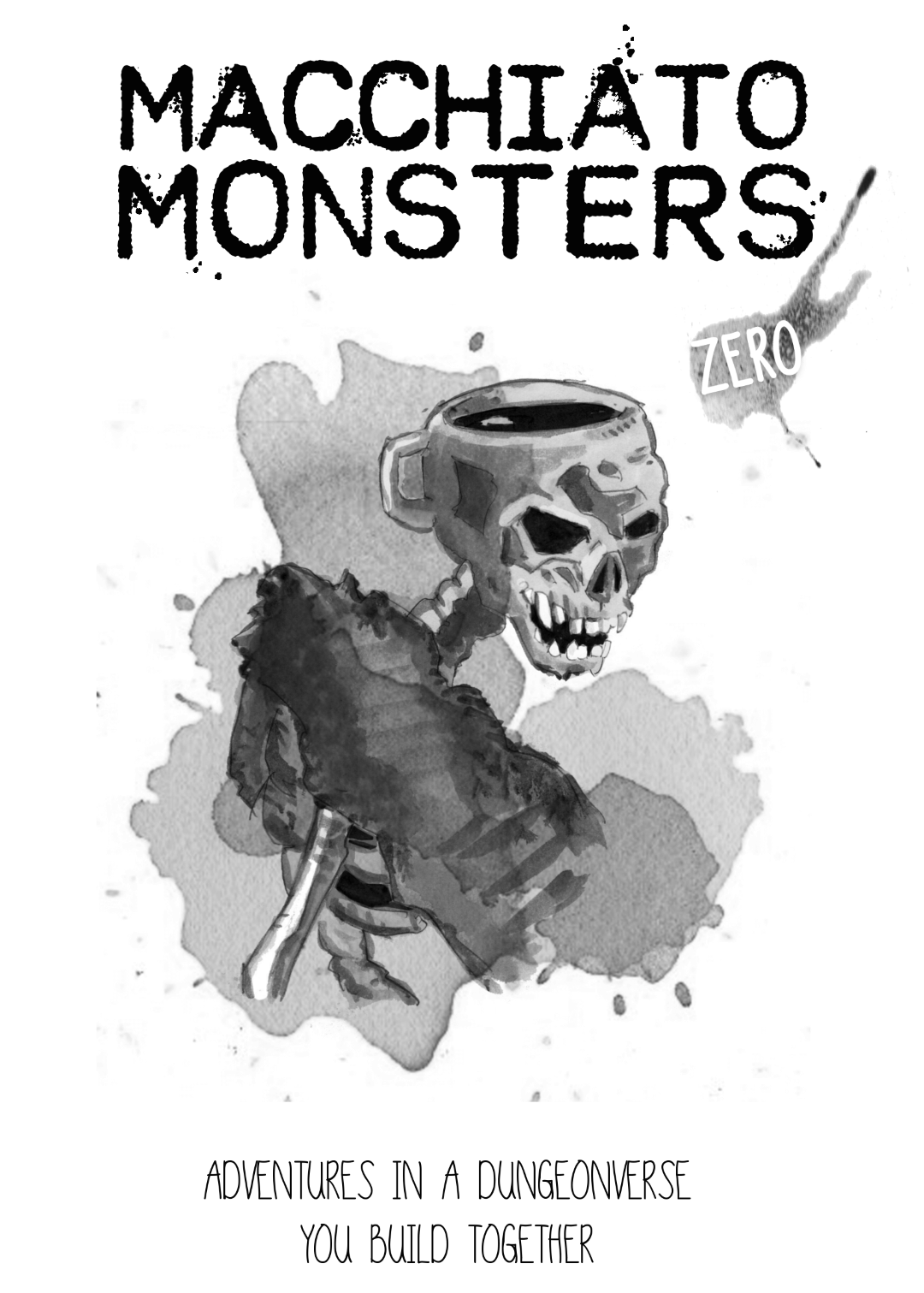
Pros: A hack of The Black Hack. Character Generation is flexible, rather than having pre-set classes. It actually kinda reminds me of Clink in that regard. The game expands the “usage” die and goes nuts with it. The magic rules are also very clever and sound like a blast. I’d have to play it to see how well it works.
Cons: Combat again seems a bit samey (no special actions or combat manuevers), but the enhanced magic rules might help offset this a great deal. Definitely sounds like something worth trying.
Maze Rats Permalink
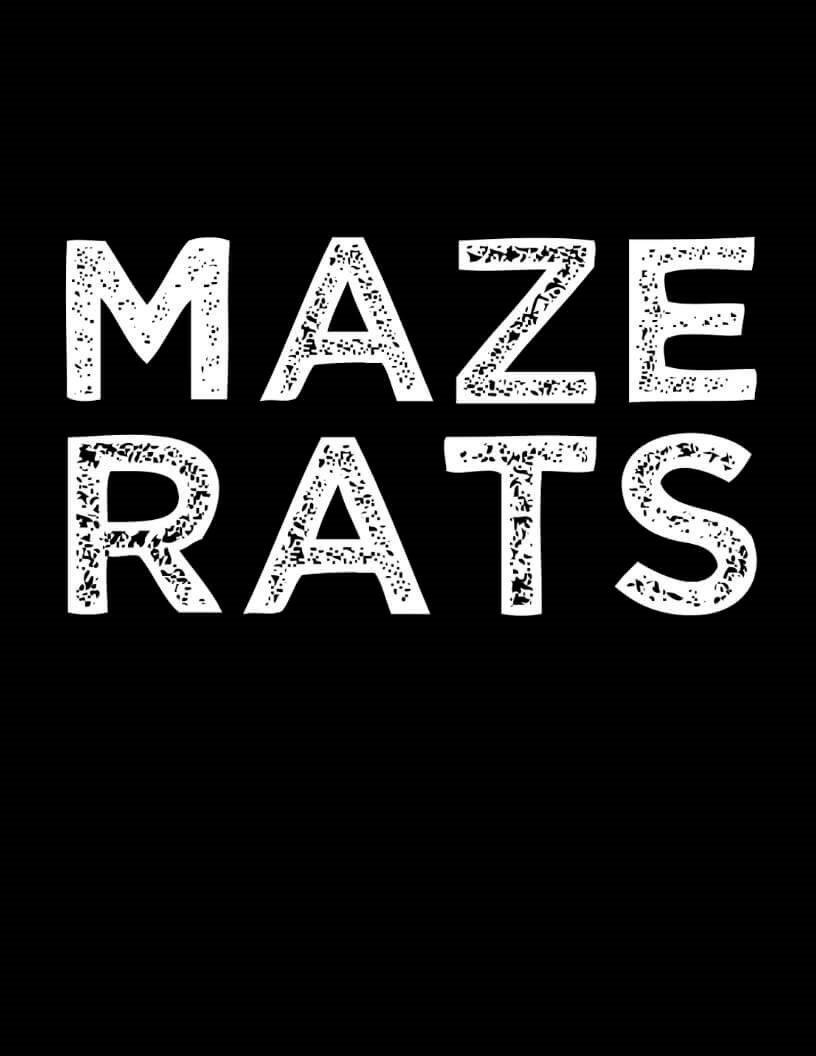
Pros: Uses a 2d6 system that immediately attracts me as a Dungeon World fan. But that’s where the similarities end. Combat is clever; you just roll damage, no to-hit. Armor is common; most things have 6 armor and 6-10 HP, so only the high damage rolls have any effect. Magic is also really fun; every morning you randomly roll the spells you know for that day. Makes each adventure feel different although mages won’t be very different from one another. I think it could add a fun gonzo-like element to a bland dungeon crawl.
Cons: This is by far the most bare-bones of the systems I’ve read, especially if you leave out the magic rules. This one might be a bit too simple for me!
Into the Odd Permalink
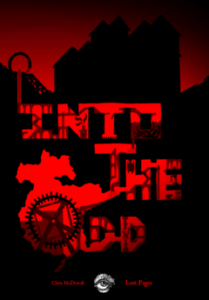
I reviewed Into the Odd before. In fact this is the game responsible for renewing my interest in old-school dungeon crawls. I’m planning to use the newest version of the rules (called BastionLand).
Pros: Not much more complicated than Maze Rats, I think the combat rules add a much-needed element: Group tactics. When 3 players attack a monster they all roll together and just use the highest result. This encourages players to spread the damage to multiple enemies while still allowing gang-ups to be effective. Maybe I’m overblowing it, but this minor rules change has done WONDERS for making combat interesting without slowing it down.
Cons: Still pretty simple even with that cool rule. Characters are extremely fragile with not much available for advancement. Definitely better suited for meat-grinders where players go through 4 characters each.
Conclusion Permalink
The only thing keeping me from simply choosing Into the Odd is the character fragility. I have a few adventure modules in mind that I want to run and I don’t know if my players will want to chew through 5 characters every session. Maybe I can simply adapt that killer rule to Macchiato monsters or The Black Hack. Or maybe just knuckle down and teach my group Lamentations. We’ll see.
What do you think? Did I miss any good dungeon crawl systems? Any ideas for how to make this work the way I want it to?